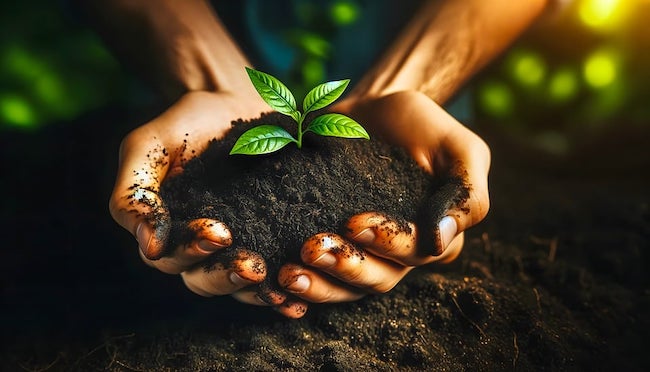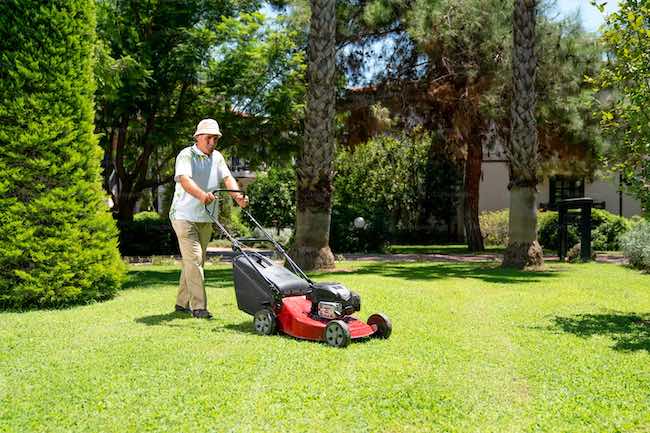Go Green: 6 Tips to Sustainable Gardening and Waste Management
Raising concerns about environmental deterioration and the continuous decline of natural reserves are keeping today’s world on edge. Preservation of nature and green practices are at the forefront of our minds. In light of this, Green gardening has also popped up as a revered trend.

As we strive down the path of minimizing our carbon footprint and restoring the planet for future generations, sustainable practices in our gardening routines are crucial. One vital aspect often overlooked is waste management, including unused bedding and furniture removal.
Today, we will find out some sustainable gardening management tips to flip your gardens into natural havens.
Mow Your Lawn Moderately
Although we tend to mow our lawns as soon as the grass rises above 7-8 inches, bio-reservation experts emphasize the need to clip the lawns only once in a long while. If you were searching for an excellent excuse to skip your lawn mowing duty, this is it!

Mowing a patch of your lawn less from the months of March to September gives wildflowers and pollinators a real boost. In most of the regions of the UK and the US, the month of May, in particular, is vital for flowering plants’ growth, and mowing can retard it tremendously.
Use Organic Fertilizers and Pesticides
Organic fertilizers and pesticides are the best landscape solutions that you will come across in the dictionary of green gardening. Organic fertilizing agents reduce the environmental impact and promote healthy plant growth.
The chemical products of pesticides and fertilizers leach into the water and soil to harm the local ecosystems. On the other hand, organic solutions like compost and plant-based fertilizers provide all the necessary nutrients to plants without damaging the nearby life.
Leverage Grasscycling
Grasscycling is a relatively less renowned but very effective recycling method of clipped grass. In this method, you leave the slipped grass lying around in the lawn to let it biodegrade and decompose to provide nutrients to your garden.
It might be disturbing for many to leave grass waste lying around your garden, but the grass clippings decompose quickly, and you may not even see a trace within a few days.
Grasscycling helps to reduce the volume of yard waste while promoting the health of your garden.
Practice Water Conservation
The world is running out of natural water reserves and healthy water resources. Therefore, it is necessary to conserve water as much as possible. Simple measures like using a drip irrigation system or installing a rain barrel to collect rainwater can significantly reduce the waste of water.

Source: Unsplash
Another way to conserve water in your garden is by planting drought-tolerant and perennial plants that don’t need an everyday supply of hefty water for flourishment.
Always go for Plastic Alternatives.
Plastic dramatically contributes to the pollution of our planet. The gardening shops and farms use plastic containers in large amounts, enhancing the quantity of plastic waste. You can look for plastic alternatives for garden supplies like bamboo, biodegradable paper, grass and wood pulp pots or seed trays, etc. All these are much more environmentally friendly than non degradable plastic.
Reuse Plastic Pots
Many gardeners supply the plants in plastic containers to reduce the cost. If you need to buy the plants, make sure to reuse the plastic pots instead of throwing them away after removing the plants.
The reutilization of plastic plant pots is essential to green conservation due to its recyclable nature. Don’t rebuy the pots again and again for seed sowing or re-potting, but use the ones you already have stacked away in the backyard.
All you need to do is rinse them with warm water, use detergent to avoid any disease from spreading, and there you go. It’s that simple. Save your environment, save money.
Final Thoughts
Green gardening aims to minimize harm to the environment and restore its original shape wherever possible. This is to promote biodiversity of not only flora but also fauna. Preserve nature by using organic fertilizers, reducing chemical usage, conserving water, nurturing native plant species, and more. Adapting these methods will not only help you flourish beautiful gardens but also preserve the natural life cycle of plants and animals.


